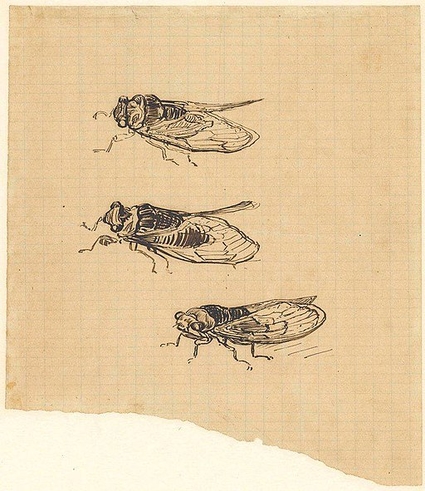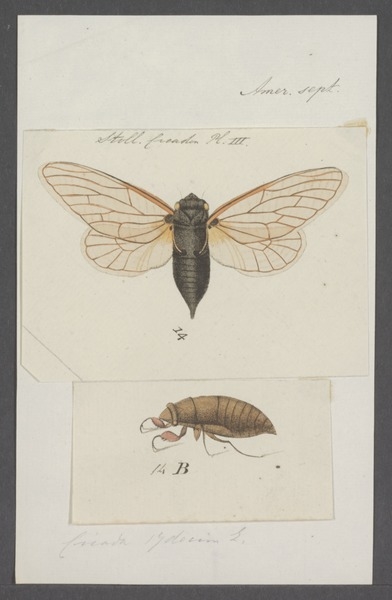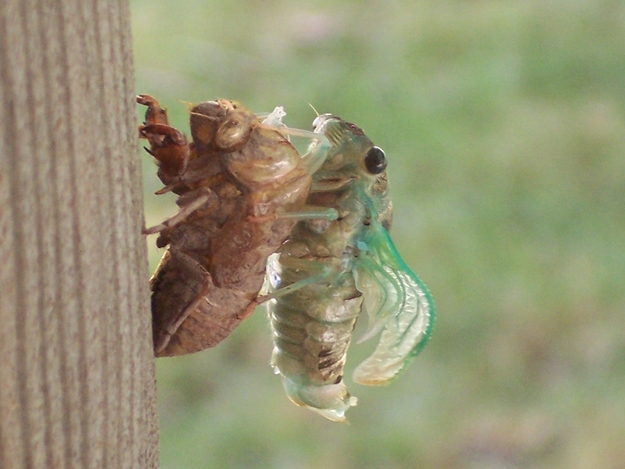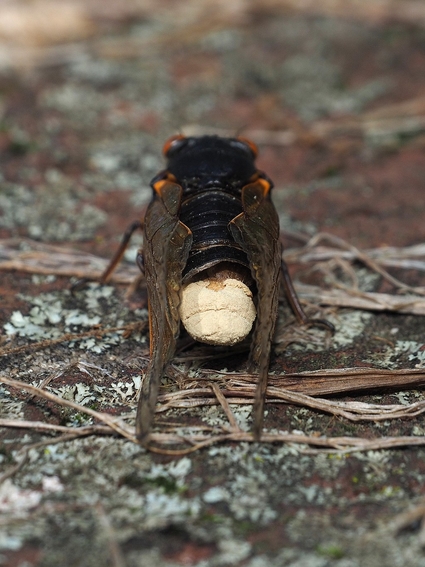Project Description
I've always been interested in cicadas and the incredibly (timeless) loud sound they produce – they have been around somewhere between 40 million and 200 million years: the earliest Cicadas are found in fossil beds from the Jurassic period. Their sounds are enchanting planet earth way before humans were walking on it. Cicadas have been mentioned in a variety of classic literature. They were talked about in Homer’s Iliad and written as motifs during the Shanghai Dynasty in China. These insects represent a lot to many cultures and can be found worldwide. For millennia, human societies across the world have identified the cicadas as the sound of summer.
Socrates says in Plato’s 370 BCE dialogue, Phaedrus mentioned them:
“Feel the freshness of the air; how pretty and pleasant it is; how it echoes with the summery, sweet song of the cicadas’ chorus!”
As I read this dialogue by Socrates, I’m reminded how we often underestimate the power of sound in our daily life - since we are constantly bombarded by images - but sound memories are super powerful in our lives.
Cicadas make sound by making a part of their exoskeleton (tymbal) vibrate and then these vibrations are transmitted through the surface they’re in. They are the world’s loudest insects. The sound we hear from the cicadas comes from the male, trying to get the female’s attention to mate, and their mating calls can reach up to 100 decibels; a sound of a motorcycle racing past you are 95 decibels, an emergency siren comes in around 120.
I came across an article from 2021, pointing out that scientists were investigating cicadas in North America that were infected by a parasitic fungus called Massospora. The fungus ate the cicadas from the bottom up, to the point that their lower half is completely gone. To everyone’s surprise, the cicadas didn’t die from that, instead, they developed a hyper-caffeinated state, matting more and even mimicking females’ behavior to attract other males (infecting all of them with the fungus).
The parasite fungus, Massospora, is sexually transmitted and is responsible for this crazy singing orgy led by the males. Scientists discovered two psychoactive drugs in the fungus; Cicadina (which is loaded full of cathinone, a type of amphetamine, from the family of stimulants also known as speed), and also Psilocybin (found in hallucinogen mushrooms).
Apparently, the fungus causes different reactions in different types of cicadas; Periodical cicadas, which take more than a decade between appearances, get sex crazy from cathinone, and in yearly cicadas, the fungus makes them hypersexual from psilocybin.
Basically, they were transformed into a zombie-horny version of themselves by this fungus, matting non-stop and infecting all around them.
With the research and project entitled “Sex, drugs, and death serenades: Horny zombie cicadas’ and their hallucinogens songs”, I intend to deepen the investigations of this fungus and its interference in the attitude of cicadas, focusing mainly on the sound aspect of their behavior. I would get in touch with researchers and scientists and also get access to cicada’s sound recordings, to produce a sound piece with several cicadas' sounds, editing and producing a track that would reflect the possible hallucinogens love songs they’re producing while high from psychoactive drugs present in the parasite fungus.
Possible ways to expand the project
.Publication with the findings and interview with a scientist (I would love to have Chris Simon, professor at the University of Connecticut, USA, and one of the world’s top cicada experts on board) ;
.Sound installation, a talk/presentation, and possibly a podcast/online material with the interview and sounds collected.
Estimated costs
Artist fee/ 4 months research, work on sound editing, producing the track, and publication: 2000 EU Scientist fee for interview for publication: 400 EU Publication/zine: B&W, A5, around 10 pages, edition of 200: 150 EU.
The Artist:
Renata De Bonis (São Paulo, BR, 1984) is an artist and researcher based in Amsterdam. She holds a PhD in Processes and Procedures of Contemporary Art from Universidade Estadual Paulista (UNESP). She began her career in the early 2000s, and her work involves multiple languages, such as painting, installations, and sound projects, which end up juxtaposing different temporalities, such as the time of the geological, astronomical, and environmental spheres, with the accelerated time of the mundane affairs of modern civilization, in an attempt to promote reflections and critical and urgent apprehensions linked to our current violent relationship with the environment.
www.soundcloud.com/renata-de-bonis
This proposal is part of the 'Penny for your Thoughts' project 2022.




